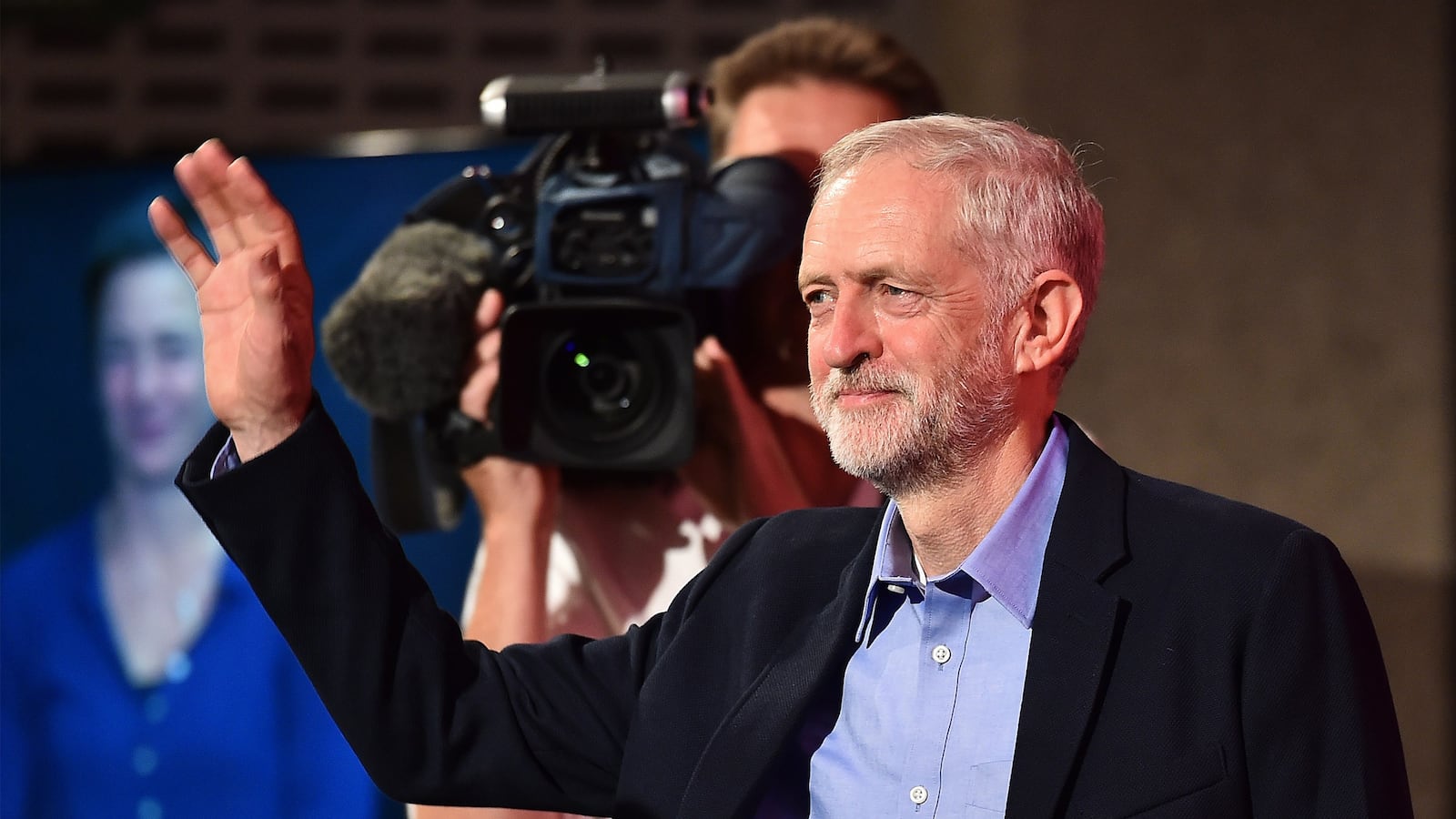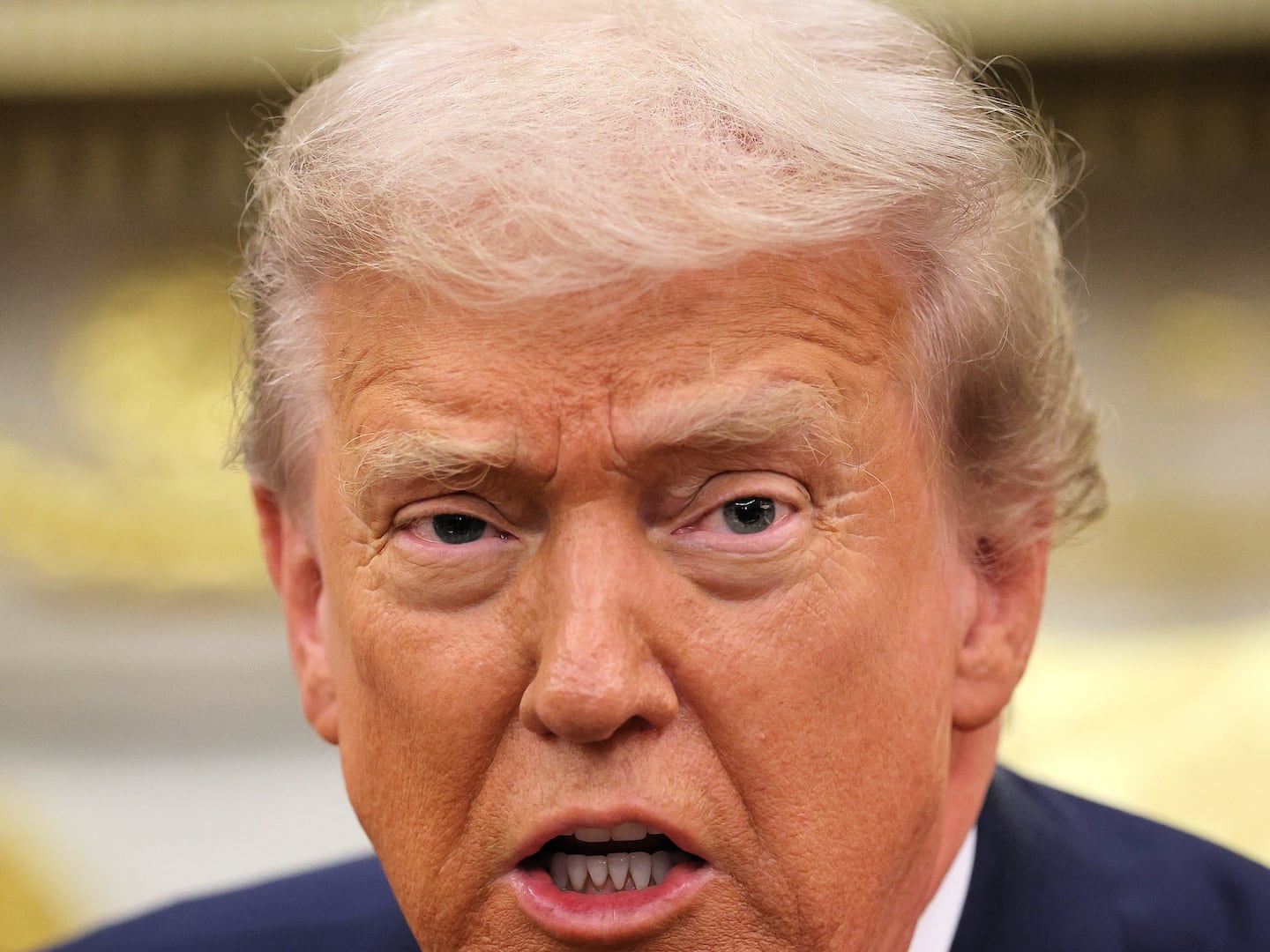In 1983, the year Jeremy Corbyn was first elected to the House of Commons, the Labour party stood on a platform promising unilateral disarmament, the nationalization of industry, support for a united Ireland and asking the United Nations to referee Britain’s dispute with Argentina over the Falkland Islands. It was a platform later and memorably dubbed the “longest suicide note in political history”.
In 2020, by contrast, the party appears determined to offer the shortest suicide note in political history. It will consist of just two words: Jeremy Corbyn.
On Saturday Corbyn, a 66 year old veteran of the far left, was unveiled as the party’s new leader, elected on a promise to turn the clock back thirty years to the era when Labour lost four consecutive elections to the Conservative party. Corbyn still believes in the manifesto upon which he was first elected to parliament. Britain has changed since then, Corbyn has not.
But that mattered little to a Labour electorate prepared to endorse a candidate who began the leadership election as a 200 to 1 outsider. Corbyn took nearly 60% of the 400,000 votes cast in the contest, giving him an overwhelming mandate to change the Labour party as he sees fit.
It is hard to over-state Corbyn’s radicalism. So much so, in fact, that any taxonomy of his beliefs reveals a left-winger who might have been created by his opponents. Corbyn is the kind of socialist conservatives dream about running against.
So how did it come to this? How have Labour elected a man who, as chairman of the anti-Iraq war “Stop the War” coalition, endorsed the Iraqi “resistance” and welcomed its attacks on British troops? How has the party chosen as its standard bearer a man who refers to Hamas and Hezbollah as “friends”? Why is Labour now led by a man who, in 1984, welcomed IRA bombers to the House of Commons just two weeks after the IRA attempted to assassinate Margaret Thatcher and her cabinet in Brighton?
The answer is three-fold. In the first place, Labour allowed anyone prepared to pay £3 ($5) to register as a Labour supporter a vote in the leadership election. That opened the way for thousands of disaffected leftists to capture the party, appreciating that while they may lack the muscle to win a general election, they had the chance to take control of Labour. In this they were assisted by a number of Conservatives who cheerfully paid up to endorse the candidate they consider the least likely to win a general election.
More importantly, however, Corbyn’s success is a reminder of the power an outsider can enjoy in an age in which many voters are thoroughly disgusted by traditional party politics. His views might be very different from Donald Trump’s, but Corbyn, despite having spent thirty years in parliament, was still able to present himself as an outsider. His lack of polish and his unconventional views proved his “authenticity”.
Thirdly, his rejection of so-called “austerity” politics and his enthusiasm for old-style leftist policies made him seem a refreshingalternative to a politics that has, in recent years, fought for control of the centre-ground. Corbyn’s refusal to compromise with the electorate might prove fatal in a general election but for left-wingers disappointed by Labour’s past willingness to trim its principles to the prevailing winds, the fact he offered a genuine alternative added greatly to his appeal.
If Corbyn is the people’s choice, however, he remains an accidental leader. Labour rules dictate that candidates for the leadership must secure the support of 15% of the parliamentary party - 35 MPs—before they can qualify for a place on the ballot. When the contest began three months ago Corbyn lacked that level of support and was forced to plead for nominations from MPs who intended to vote for other candidates. He duly received support from some MPs who felt “broadening the debate” would be useful. How these MPs feel now is necessarily a matter of some conjecture. The law of unintended consequences has rarely been quite so piquant.
Tony Blair’s task as Labour leader was to make the party electable. He succeeded to a degree that horrified the old Labour left. Blair’s vision of “New Labour” is repudiated by Corbyn’s supporters, many of whom see Blair as a hopeless sell-out whose greatest crime was to lead Labour to three election victories. Compromising with the electorate is a form of treachery and prehistoric Labour evidently still prefers the purity of opposition to the grubby concessions that are sometimes necessary in government.
Many of Corbyn’s voters do not believe he can become Prime Minister but according to one opinion poll only 10% of Corbynites felt “electability” was an important consideration when it came to choosing Labour’s new leader. In other words, they don’t care if he can win or not.
But the alternative to a Labour government is necessarily a conservative administration. Labour’s moderates have never been as depressed as they are today. They foresee a Tory landslide in 2020 if Corbyn still leads Labour in five years time. A landslide so large, in fact, that it might take Labour two elections to recover. That would mean the Conservatives remained in power until 2030, a full 20 years since David Cameron first became Prime Minister.
That may be an unduly alarmist scenario for the erstwhile “People’s Party” but this is the disaster-movie scale of horror Labour are now forced to contemplate. Could this, they worry, even be the end of the Labour party?
Ed Miliband, Corbyn’s unlamented predecessor, hinted the party towards the left and Corbyn’s rise can be seen as the logical next step on that journey. But it reflects a curious logic bafflingly prevalent on the left: namely that the British people rejected Labour in May because they felt Labour was insufficiently left-wing. In this view, anyone to the right of Corbyn—which is to say 90% of the electorate—is just a lily-livered “Tory”.
Admittedly Corbyn was assisted by the fact his leading rivals—former ministers Andy Burnham and Yvette Cooper—ran thoroughly lackluster campaigns. It was never clear what their vision for Labour was. Corbyn might easily be accused of many things but lacking a clear vision was not one of his failings. He has a clear idea what the Labour party should be for, even if it remains likely this is not a view shared by a majority of the British people.
Anti-politics is a powerful currency, however, and the world has never suffered a shortage of people thirsting for the impossible. Nevertheless, reality—as, for example, Syria and Greece have discovered—can only be kept at bay for so long. In the British context it is hard to see how a platform calling for higher taxes and more generous welfare spending can carry the country.
Sometimes Corbyn’s hard-leftism can take on a comical tinge, as when he suggested Britain’s poor performance in the Eurovision song contest could be explained by other European country’s unhappiness with Britain’s pro-American foreign policy tradition. Most often, however, Corbyn’s hostility to the USA—and, more broadly, the west—has a darker undertone. He opposed the war in Kosovo just as fervently as he opposed the wars in Afghanistan and Iraq. More recently he has suggested NATO provoked Vladimir Putin into invading Ukraine. Like many on the far-left, Corbyn’s analysis of any geopolitical dilemma is to identify which side the United States is on and then back the other. It is no surprise that he is a keen supporter of Fidel Castro’s Cuba and Hugo Chavez’s Venezuela. Israel, of course, is beyond the pale.
This is now the man leading one of Europe’s greatest political parties. It remains an extraordinary thing to contemplate. The Conservatives cannot believe their good fortune. Labour has not been driven over a cliff, the party itself has chosen to jump into the unknown. If this seems to make little sense it is because sometimes things simply make no sense. This is one of those occasions. If nothing else, however, it will prove an interesting experiment. There is, after all, something compelling about a political suicide.






